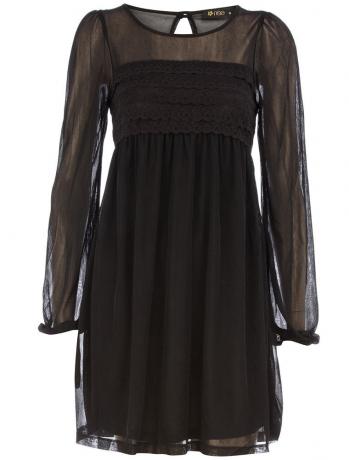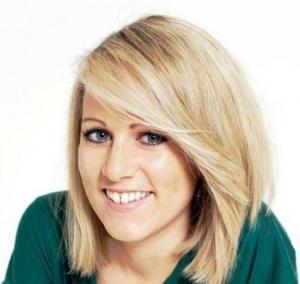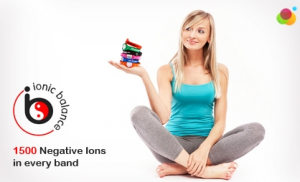Three Fish Roast – £8.99, 1kg
This product is a Special Buy on sale from 30th November 2011 for as long as stocks last.
Per serving: 269 cals, 5g fat (saturates 1.5g), 1.84g salt
A lighter festive meal option that is perfect for Christmas Eve. With appetite-curbing protein and omega-3s for a healthy heart, Aldi’s Three Fish Roast is also rich in energising carbs and bone-friendly calcium.
Specially Selected Long Sliced Smoked Salmon – £3.49, 170g
This product is a Special Buy on sale from 12th December for as long as stocks last.
Per 100g: 190 cals, 10.5g fat (saturates 2.8g), 2.75g salt
This indulgent festive favourite is also one of the top sources of omega-3 fatty acids – the type that help to keep hearts and brains healthy. Serve simply with lemon juice, wholemeal bread and some dill as a good-for-you starter.
Specially Selected Orange Topped Christmas Pudding – £7.99, 907g
This product is a Special Buy on sale from 30th October 2011 for as long as stocks last.
Per slice (113g or one eighth of the pudding): 368 cals, 12.3g fat (saturates 5.8g), 39.9g sugars
Who could imagine something so scrummy could be good for you? But the dried fruit that’s crammed into this pud counts as one of your five a day, and the extra orange will boost your vitamin C intake.
Luxury Prawn Ring – £3, 300g
This product is a Special Buy on sale from 30th November for as long as stocks last.
Per 100g: 112 cals, 3.3g fat (saturates 0.6g), 1.3g salt
A great choice to have on the buffet table for weight-watchers who don’t want to feel like they’re weight-watching! Prawns are high in hunger-busting protein and a great source of vitamin B12 – needed for making red blood cells and keeping nerves healthy. Even with the yummy sauces, it’s still a low fat choice.
Specially Selected Venison Steaks – £6.99, 400g
This product is a Special Buy on sale from 30th November 2011 for as long as stocks last.
Per serving: 361 cals, 5.4g fat (saturates 1.8g), 1g salt
Who said red meat is bad for you? These lightly marinated venison steaks are a real festive treat, yet are low in fat and are a very good source of anaemia-beating iron.
Part Boned Stuffed Guinea Fowl – £8.99, 850g
This product is a Special Buy on sale from 30th November 2011 for as long as stocks last.
Per 100g: 199 cals, 9.2g fat (saturates 2.7g), 0.53g salt
For something a little bit different, but with a similarly low calorie count to turkey, guinea fowl fits the bill perfectly. This stuffed version has all the hard work done for you, and you can tuck in knowing that you’re topping up on important B vitamins (needed for our cells to release energy) and the antioxidant selenium.
Bramwells Cranberry Sauce – 59p, 200g
This product is available in stores nationwide throughout the Christmas period.
Per tbsp: 28 cals, trace of fat, 6.7g sugars
Made with 47% cranberries (antioxidant-rich and linked with lower risk of urinary tract infections). For weight watchers it’s a fat-free addition to Christmas lunch.
Whole Stuffed Pheasant – £7.99, 850g
This product is a Special Buy on sale from 30th November 2011 for as long as stocks last. Per 100g: 186 cals, 6.5g fat (saturates 2.2g), 0.54g salt
Fancy a more gamey bird than turkey but don’t want the saturated fat of red meat? Pheasant fits the bill perfectly, and Aldi’s stuffed version is wonderfully succulent and tasty. If you’re keeping an eye on your cholesterol levels but want something a bit different this Christmas, this is for you.
Sushi Assortment – £3, 245g
Available in stores from 30th November for as long as stocks last.
Per 100g: 153 cals, 2.6g fat (0.2g saturates), 1.5g salt
These rice, salmon and veg sushi bites make a healthy change from vol-au-vents and sausage rolls! They’re light, nutritious and the perfect antidote to rich food.
Whole Duck – £6.99, 2.4 – 2.6kg
This product is a Special Buy on sale from 30th November 2011 for as long as stocks last.
Per 100g (roasted, meat only): 195 cals, 10.4g fat (saturates 3.3g), trace salt
Surprisingly, duck is not the fatty horror that it’s made out to be. If you’re worried about your waistline and arteries, make sure you serve yourself meat without any accompanying skin or fat, and you’ll have a healthy meal with more iron and less artery-clogging fat than lean minced beef!
Whole Fresh British Turkey – £19.99, 4.5kg (PRICE EMBARGOED UNTIL 16TH DECEMBER)
This product is a Special Buy on sale from 19th December and available for as long as stocks last.
Per 100g (roasted, white meat): 173 cals, 4.8g fat (saturates 1.8g), trace salt
You can’t beat turkey for its low fat and high protein content, so if you fill your plate with this and lots of veg, there’s no need to make your Christmas dinner a calorie nightmare!































